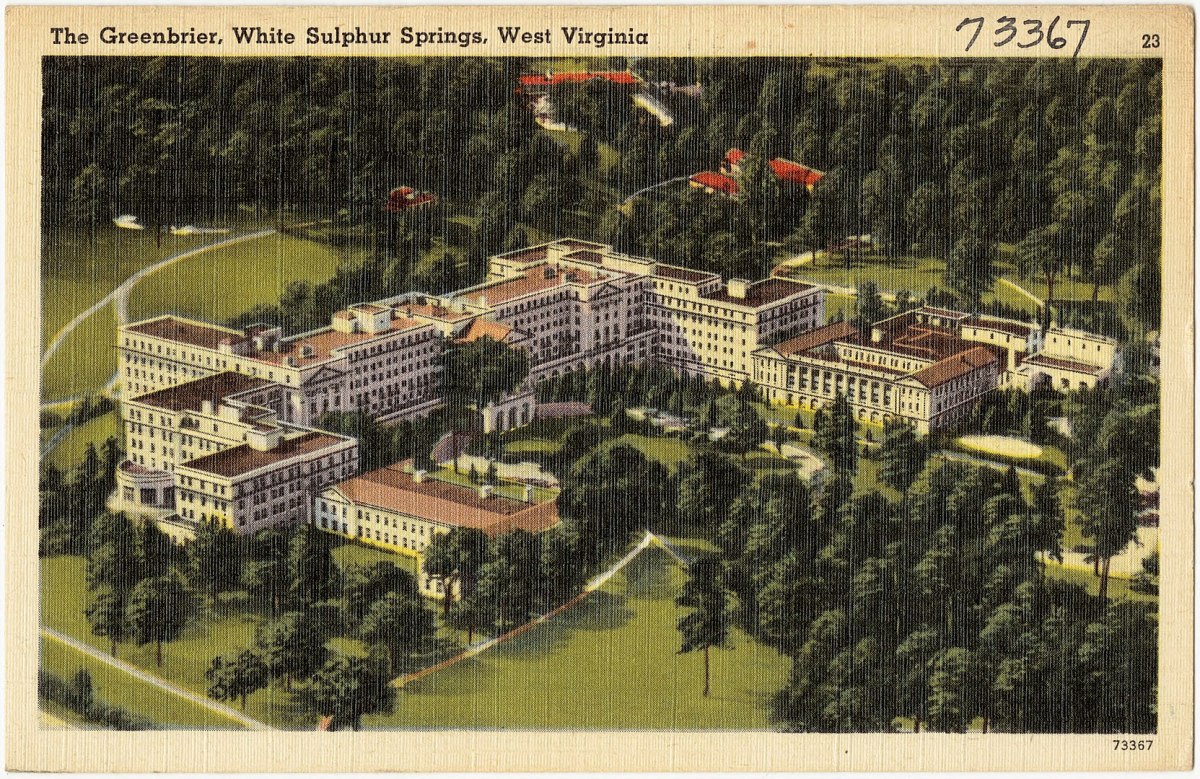What happens to the overseas diplomats of a sudden-hostile nation when war breaks out? This was a question faced by the Roosevelt administration when World War II began: there were numerous diplomats from Germany, Italy and Japan residing in the United States, and they suddenly posed a security risk.
At Smithsonian Magazine, Harvey Solomon of Zócalo Public Square delves into this peculiar corner of history — which was a serious issue at the time the President and his administration were grappling with it.
Fearful of envoys’ ongoing communications with home, the Roosevelt administration made a controversial decision to send these foreign nationals and their families to remote luxury hotels. The primary goal of this plan was reciprocity—the hope that good treatment of enemy diplomats here would engender the same for American counterparts trapped overseas. (It did not.)
Among those hotels was The Greenbrier, located in West Virginia — a resort that Dwight Garner, writing in The New York Times in 2010, called “a time-machine throwback to earlier notions of luxury and leisure in America.” Solomon notes that the hotel kept detailed records of its wartime history — which retrospectively depicts the hotel’s general manager, Loren Johnston, as a thoroughly principled figure.
“Johnston emerges as a patriot who exhorted his employees to serve America’s enemies with courtesy and respect, even when their neighbors and countrymen were vilifying them,” writes Solomon. He notes that the treatment afforded Axis diplomats infuriated a large number of Americans. Some disliked the idea of Axis diplomats being treated better than their American counterparts were in Germany or Japan; given the amount of racism directed at the Japanese, there were also less pleasant objections raised.
This arrangement lasted until 1942, when the diplomats returned home. It’s an interesting and unexpected period in American history (and one that Solomon has written about at length), and a moment that explores the tension between principles and politics.
Subscribe here for our free daily newsletter.
Thanks for reading InsideHook. Sign up for our daily newsletter and be in the know.


















